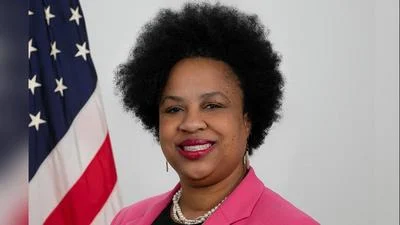Patrice Onwuka, Director of the Center for Economic Opportunity at the Independent Women’s Forum | Provided photo
Patrice Onwuka, Director of the Center for Economic Opportunity at the Independent Women’s Forum | Provided photo
Patrice Onwuka, Director of the Center for Economic Opportunity at the Independent Women’s Forum, said the Credit Card Competition Act amendment would reduce access to credit for low-income Americans. The statement was made in a letter to U.S. senators.
“This bill harms consumers, particularly low-income Americans, by reducing access to credit,” said Patrice Onwuka. “By authorizing the federal government to intervene in contracts between private parties, this encroachment will force small banks and credit unions to severely limit or cease providing co-branded cards that millions of consumers use every day,” said Patrice Onwuka.
According to Congress.gov, the Credit Card Competition Act of 2023, introduced in the Senate as S.1838, aims to enhance competition in the credit card market by requiring larger financial institutions to offer at least two network options for transactions. The bill seeks to reduce merchant costs associated with credit card fees. Proponents argue that increased competition among networks could benefit consumers through lower prices.
A 2024 working paper from the University of Miami School of Business finds that capping interchange fees could reduce small financial institutions’ revenues by up to 15%, significantly impacting credit unions and community banks. The study warns that this loss could hinder these institutions' ability to provide credit, especially to rural and low-income borrowers. The author argues that such policies may unintentionally exacerbate financial exclusion.
According to a report by the Federal Reserve, small issuers like credit unions in states such as Iowa might experience increased costs and reduced interchange revenue if routing mandates are enforced. Public comments included in the report warned that credit unions serving rural and underserved areas may need to reduce services as a consequence. The Federal Reserve noted that smaller institutions often depend on interchange fees to maintain operations and offer affordable products to their members.
Patrice Onwuka serves as Director of the Center for Economic Opportunity at the Independent Women’s Forum and is a regular media commentator on economic and cultural issues. She holds a bachelor's degree from Tufts University and a master's from Boston College. Onwuka has appeared on Fox News, NPR, and other outlets, frequently addressing economic policy, race, and opportunity.






 Alerts Sign-up
Alerts Sign-up